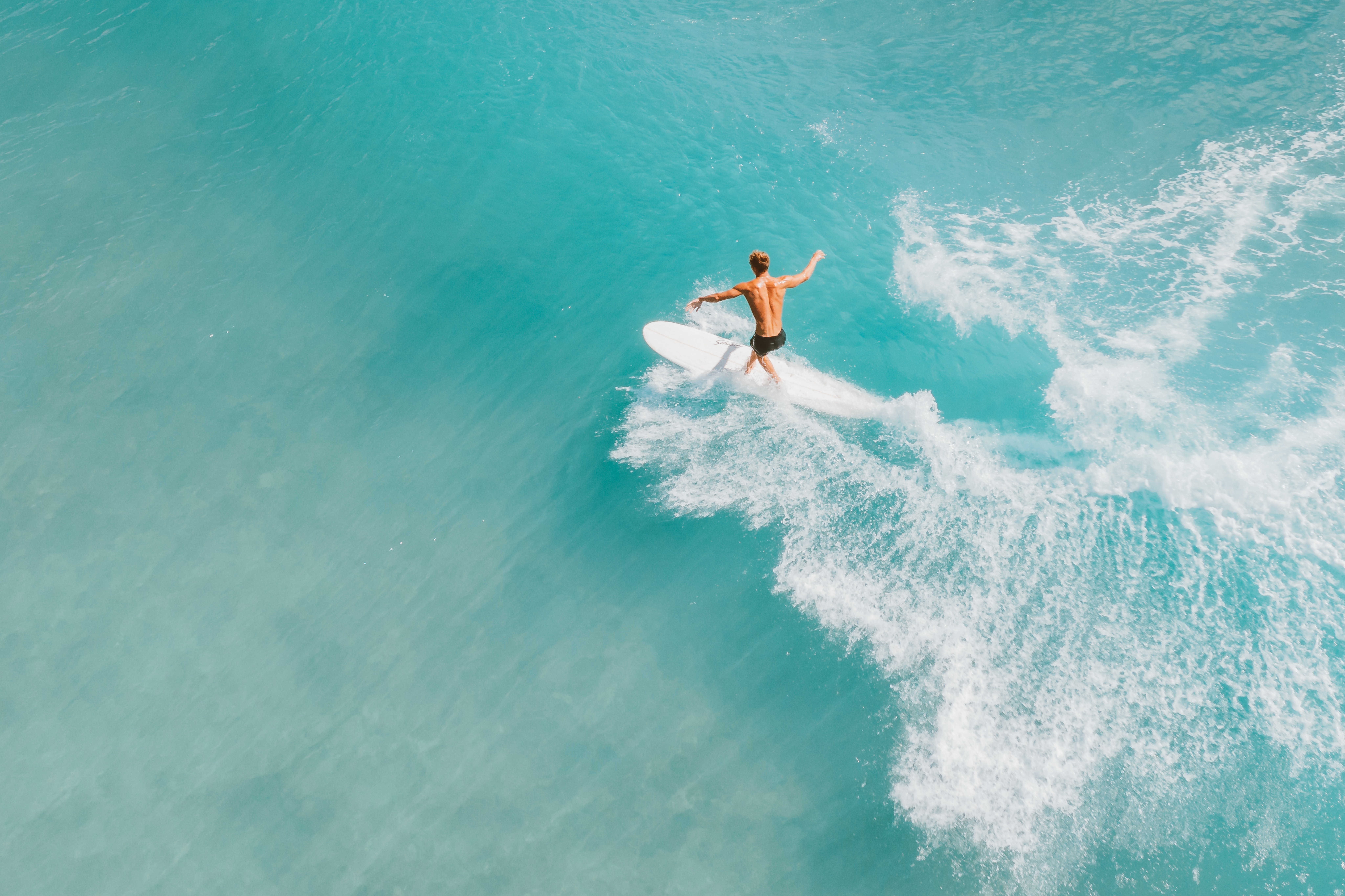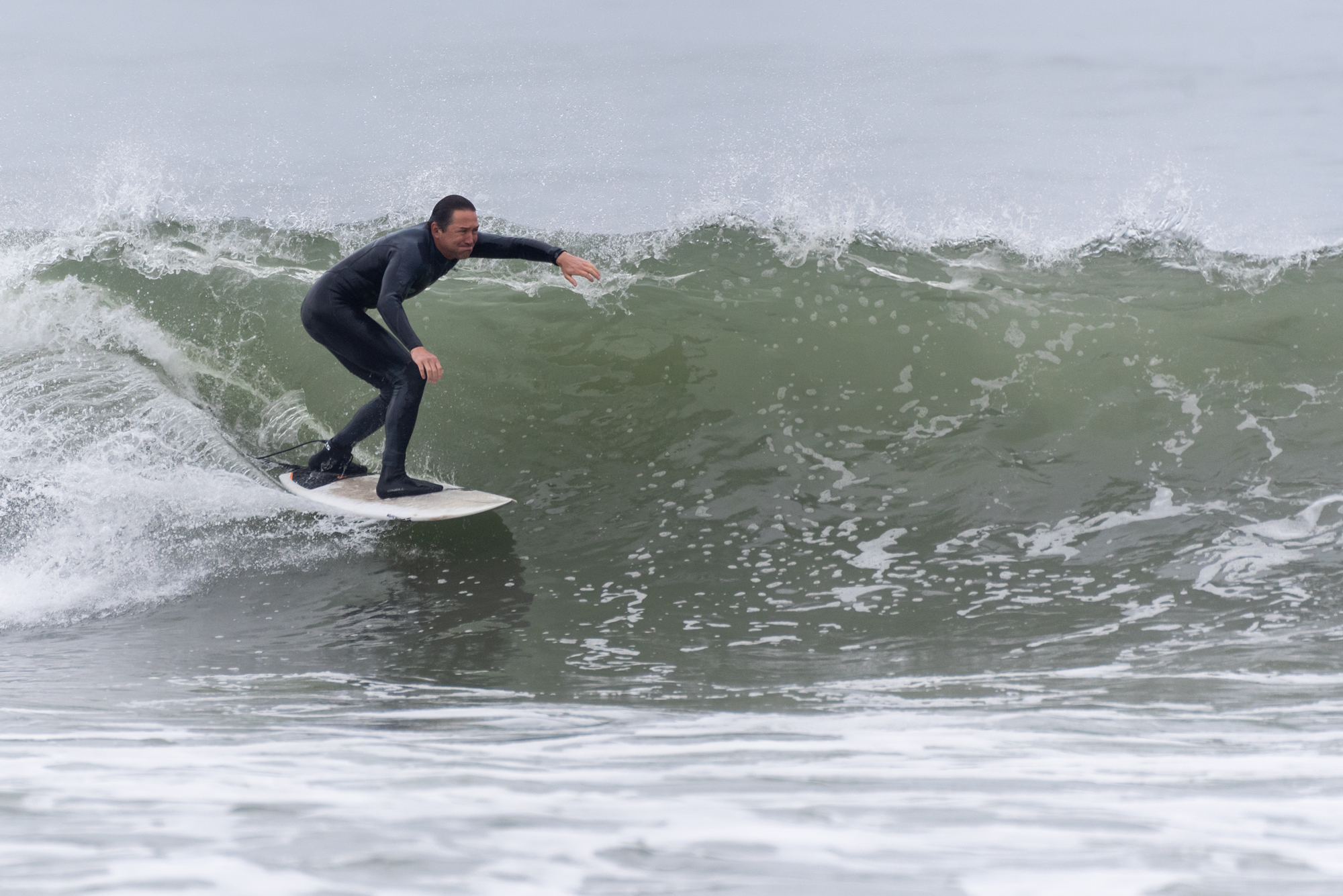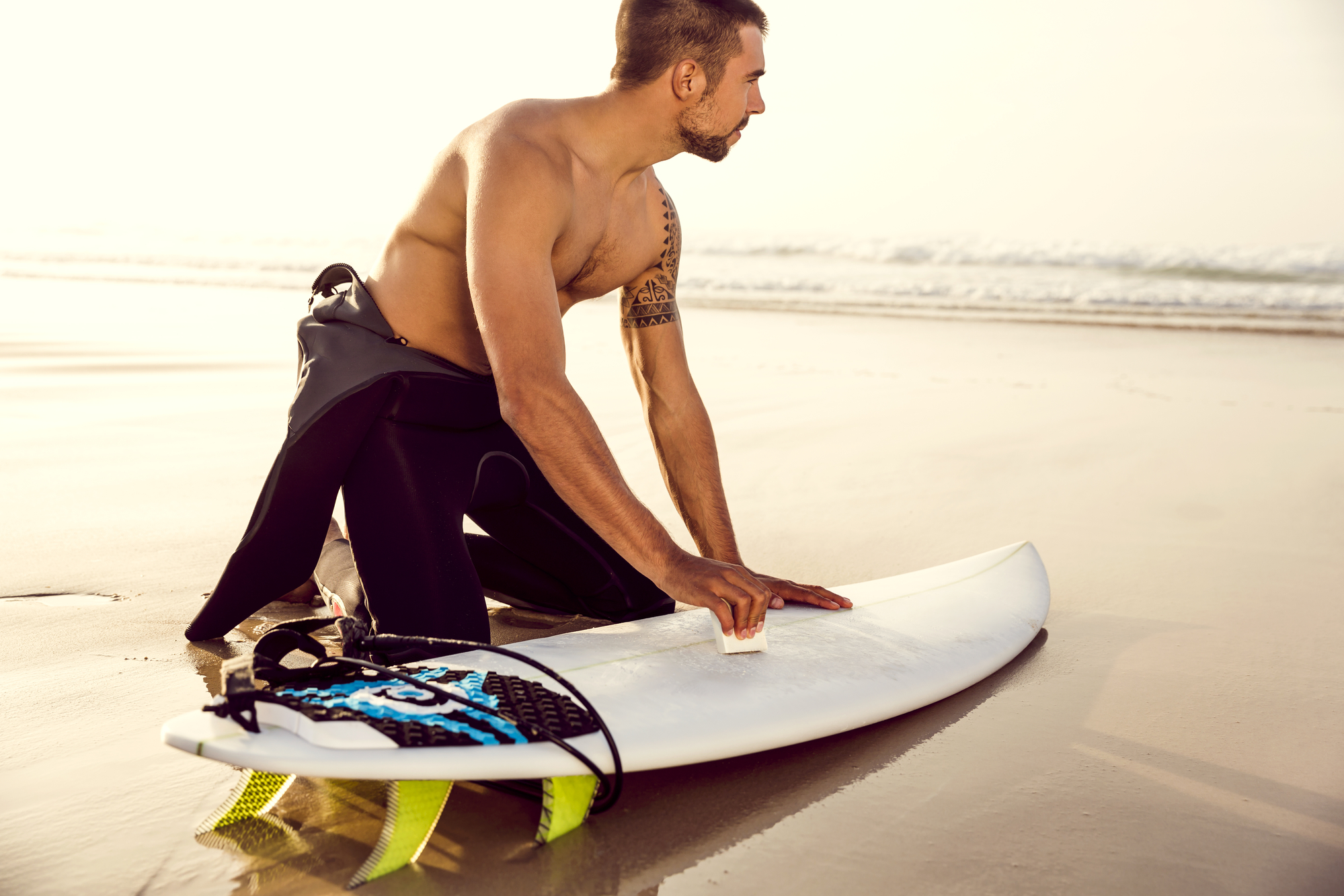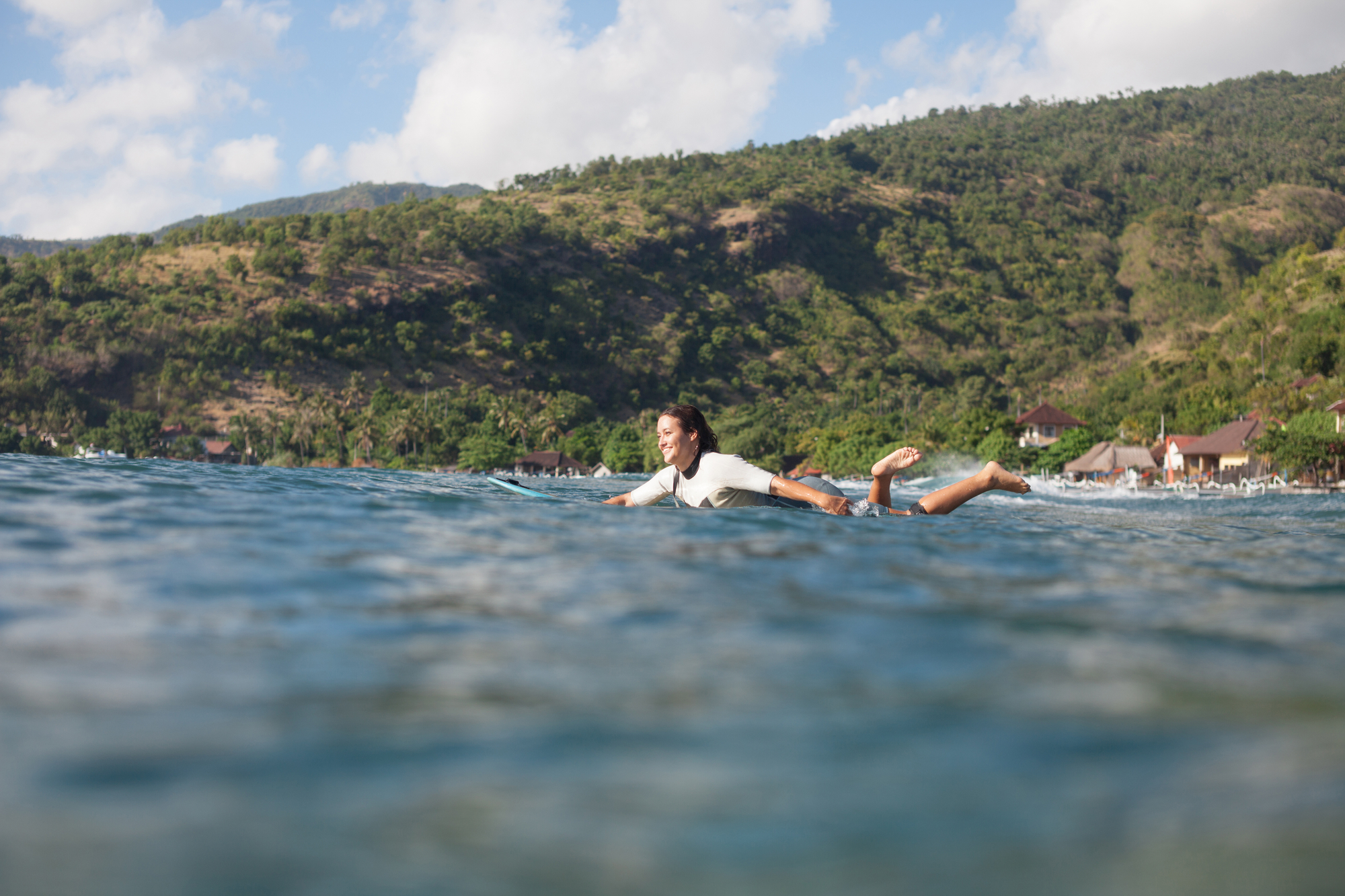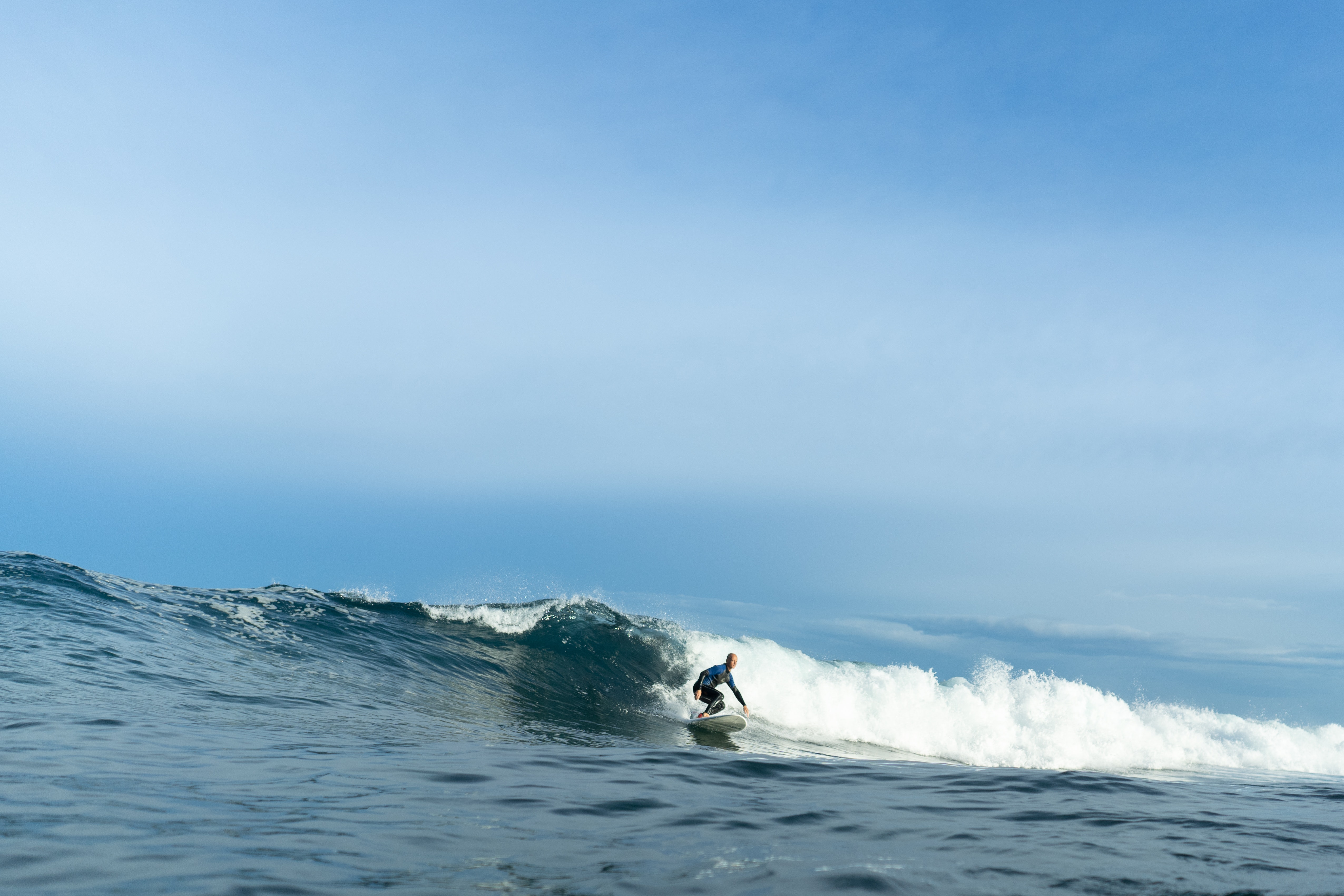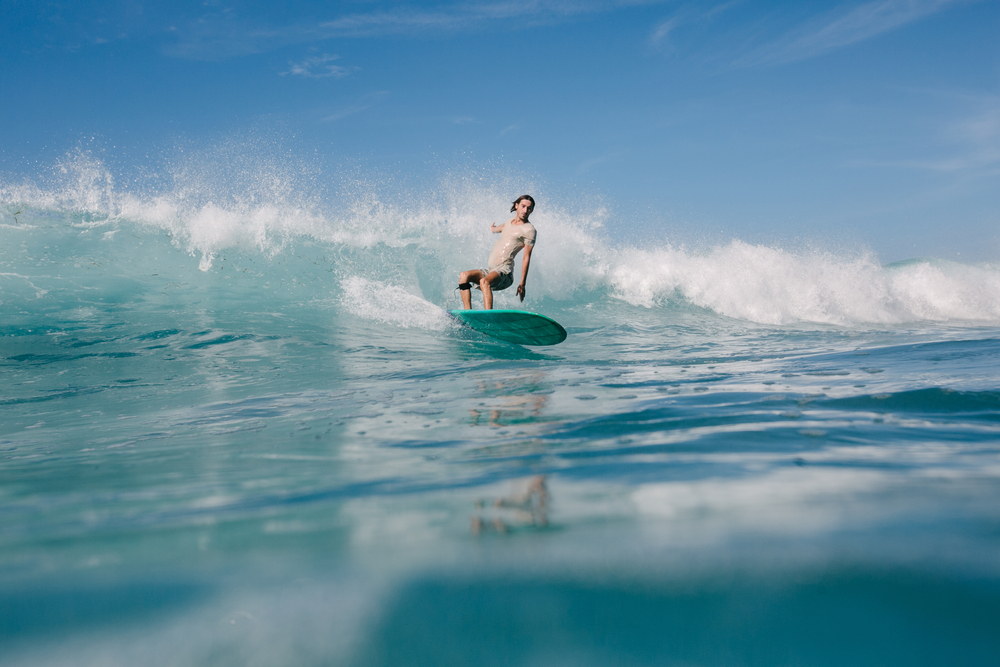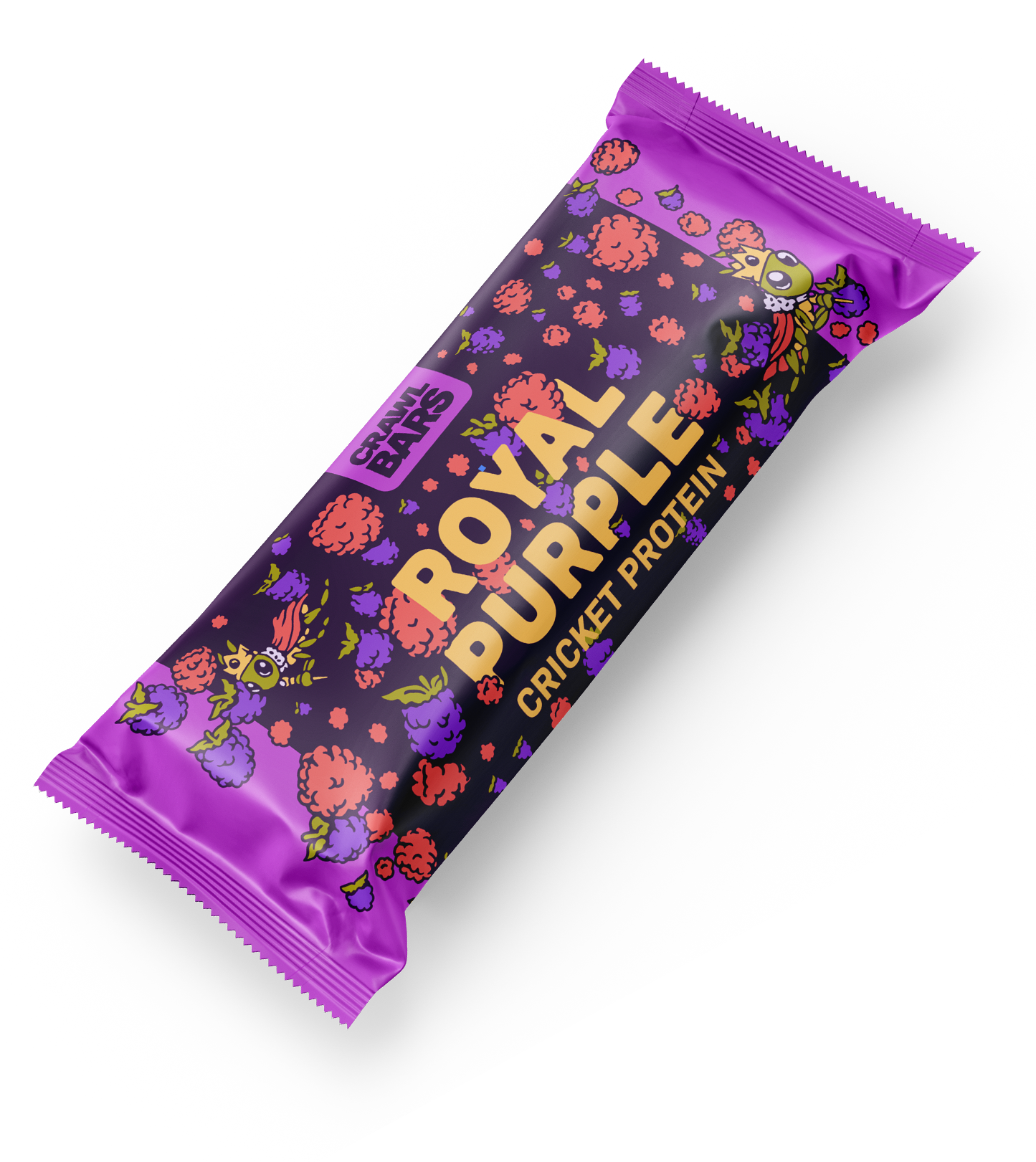There is no denying that surfing is one of the most exciting and fun sports out there. There’s something enticing about being able to master the tides and ride against a backdrop of rolling azure waves.
It wouldn’t be surprising if you’ve felt the desire to head on over to the nearest beach, grab a board, and try your hand at surfing.
If you’ve never tried surfing before, the foremost question on your mind would be, “how many surf lessons do I need before I get good?”
Let’s find out!
Is there a “Perfect” Number When It Comes to Surfing Lessons?
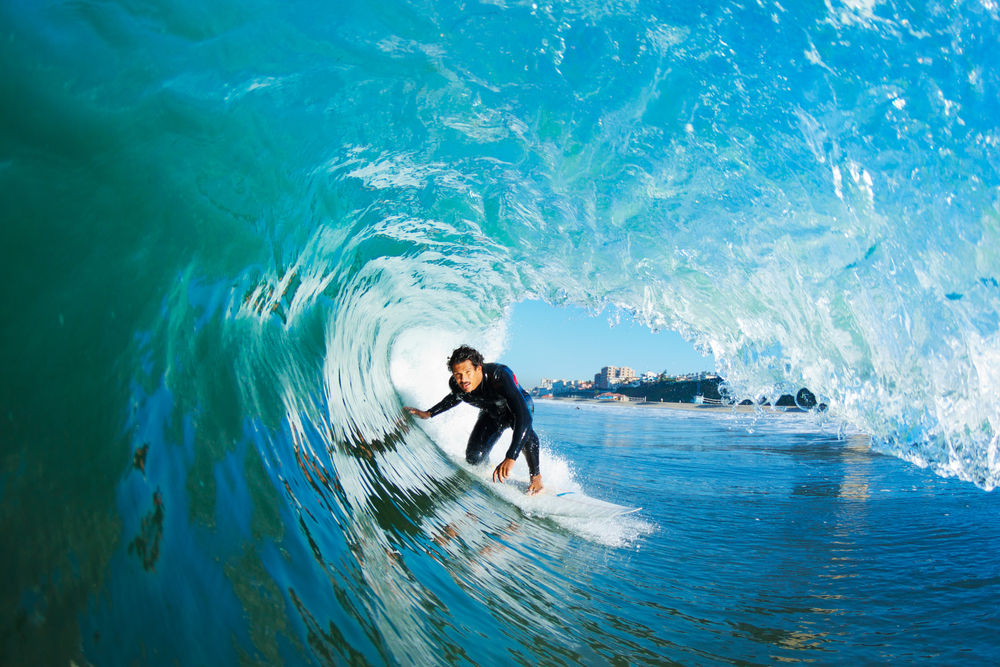
The general rule when it comes to surfing lessons is that every person will need around three to five lessons to understand the basic skills needed. Afterwards, it is all about taking the time and effort to hone those skills.
You’ll need to perfect the form, understand how balance and direction work while on your board, and adjust to the movement of the water to be able to stand up and complete your ride.
Just like any other sport, it takes patience and determination to get to the point where you can instinctively move with the waves.
Muscle memory plays a huge part when it comes to surfing. The only way to get the required reactions is by practicing over and over as much as possible.
So, yes, be prepared to wipe out in the water countless times!
Just don’t forget to have fun while doing so, and don’t be frustrated with a seemingly slow pace.
After all, much of the fun of learning how to surf is immersing yourself in the wild experience.
Do You Need to Attend a Formal Surf Camp?
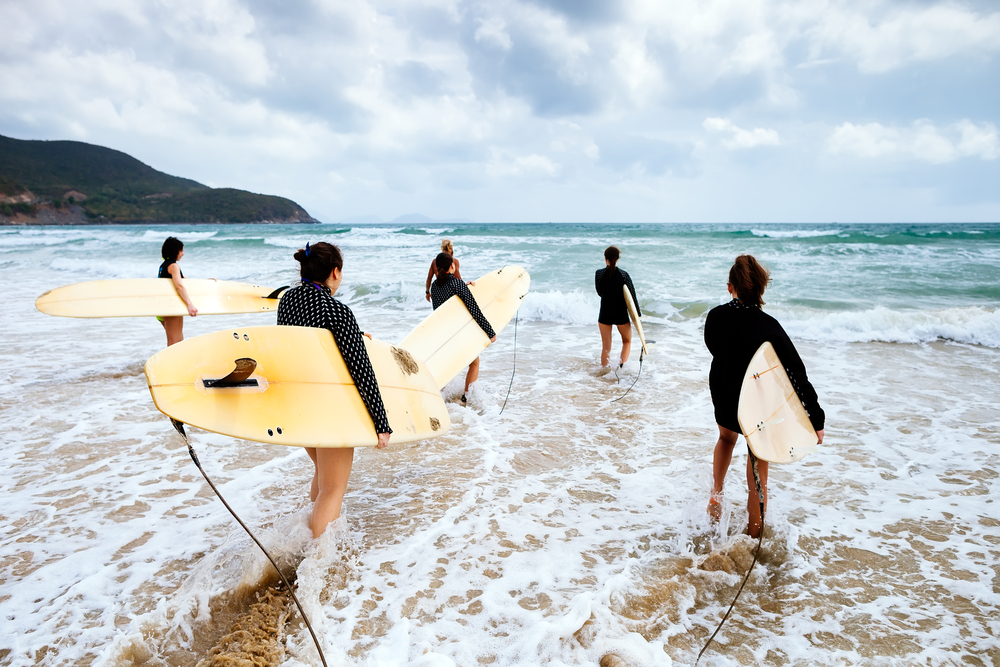
While you can get basic lessons one-on-one with a professional surf coach and perfect the basics on your own, there is something to be said about joining a formal surf camp.
You’ll get to learn how to surf in a controlled environment within a set time and be surrounded by like-minded people.
There's no need to feel shy about your progress in a beginner's class since you'll be with people who are starting out at the same point as yourself.
What’s more, you’ll also enjoy an encouraging environment and share the thrill of learning skills with your classmates.
Aside from a fitting learning setting, here are other things that you’ll benefit from when you join a formal surf camp:
- Learning how to read the waves and weather
- Being safe while out in the ocean
- Recognizing and correcting bad habits
- Basic gear and how to take care of them
- Surf etiquette
- Basic movements such as paddling out and popping up while on your board
What is Surf Etiquette?
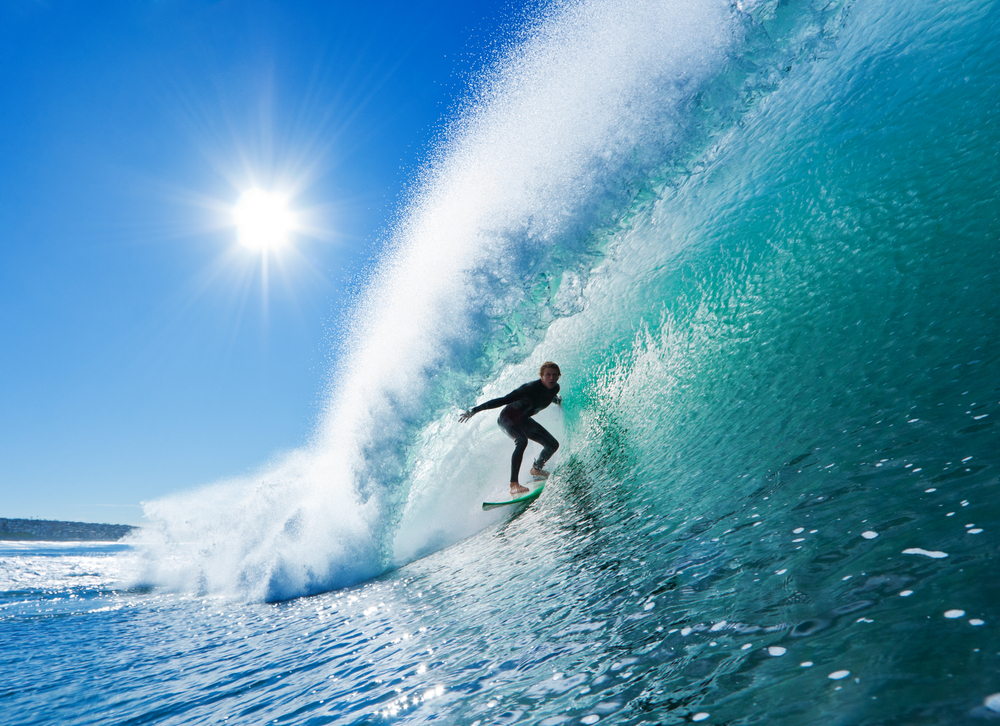
Keep in mind that surfing is a shared sport: there will most likely be other surfers in the water, especially if you’re in a popular surfing destination.
What’s more, you’ll also need to be aware of other people enjoying the ocean, not just surfers. You need to be mindful of swimmers, kayakers, and other water sports enthusiasts.
A huge part of surf etiquette is learning how to enjoy the ocean with other people without interfering with their activities or sacrificing your own experience.
For surfers, the most important thing to keep in mind is to never steal someone else’s wave. In surfer speak, this is known as “dropping in” while another surfer is riding a wave.
Generally, a surfer closer to the wave's peak has the right of way and should be left alone.
Dropping in on someone can result in a collision and injure all parties involved.
During your lessons, you’ll learn how to signal other surfers about your intention to ride a wave as well as how to determine if it is getting too crowded for comfort and safety.
What Should You Expect During Your First Lesson?
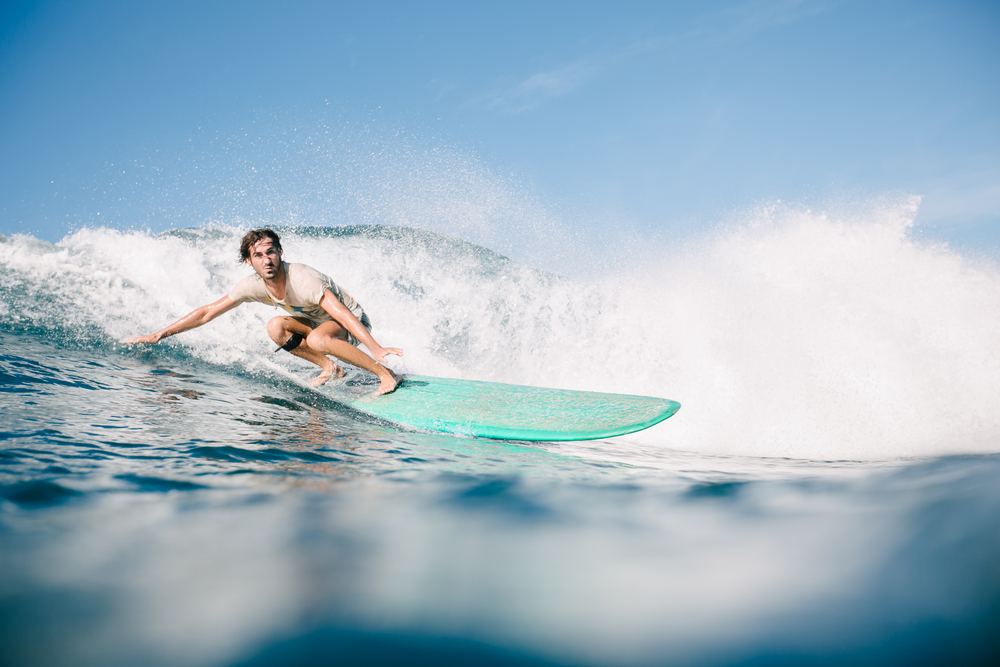
You have to realize that during your first surfing lesson, most of the time will be spent on the sand as you become acquainted with the weight and feel of your board.
You’ll learn how to position your body on the surface of the board and how to pop up properly to maintain your balance and form.
Don’t rush these lessons since they are the cornerstone of your surfing experience!
Once your instructor is sure that you have mastered these basics, you’ll be allowed to hit the water for your first true surfing experience.
You’ll be directed to head to a zone with waves that are appropriate to your skill level. These waves are typically smaller and gentler so that you’ll be able to hone your basic knowledge without a high risk of injury.
Conclusion
For beginners with zero surfing knowledge, the number of surfing lessons needed to understand the basics of the sport is around three to five.
It’s better to learn from a certified instructor and hone your skills in a formal setting rather than on your own so that you can get tips on how to improve your form. It will also help you avoid bad habits from the start so you don’t get “locked-in” these bad habits.
No one likes having to go through a frustrating learning curve!
After your lessons, you can be sure that there will be no shortage of people who are willing to help you on your surfing journey.
The surfing community, as a whole, is a friendly and welcoming group that will be happy to teach you as you hone your craft.
Good luck!

